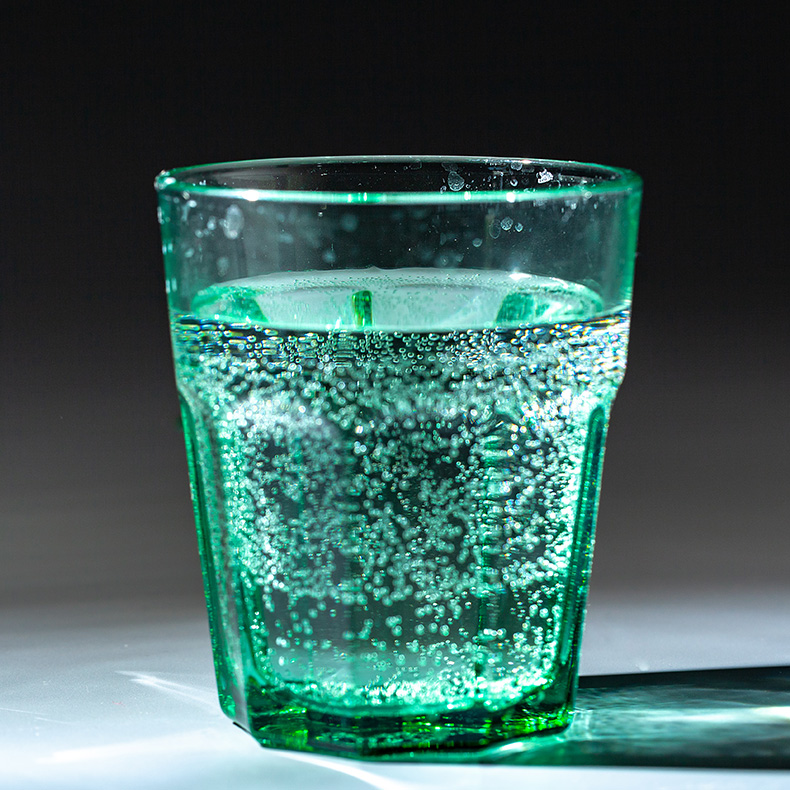From Specialist Dilek ÇOBAN
Do Not Ignore the Role of Natural Resources in the Healthy Development of Children!
Improving not only the life time of the individual but also the quality of life is one of the main objectives of making health-related recommendations. Education and counseling provided by health professionals is an important tool that can be used in strengthening social health, preventing chronic diseases, raising the awareness of individuals and thus improving the quality of life. Complex diseases such as heart and vascular diseases are significantly affected by diet, as well as genetic, environmental, living conditions, social culture and regional characteristics. In this respect, the nutrition recommendations presented to the society should include not only the international literature presented in a foreign language, but also the natural riches and variables of the countries. Perhaps the most important purpose of this short review is to briefly review the existing suggestions about the consumption of mineral waters, which is an important source of natural wealth belonging to our country, has a place in the nutritional culture of our society, and to provide information to health professionals and interested parties who make suggestions to individuals.
Cardiovascular Diseases and Some Important Causes
Cardiovascular diseases are the most important cause of death and loss of labor in the whole world and in our country. Chronic diseases such as heart disease are usually long-term health problems that progress slowly and require regular and continuous treatment, care and monitoring. Moreover, it brings significant economic burden to the individual, families and societies.
Chronic heart diseases are usually based on genetic, nutritional disorders and risk factors due to insufficient physical activity.1 Coronary artery diseases and vascular occlusion are more common in men than in women. However, since the protective hormonal structure decreases after menopause, the susceptibility to vascular occlusion diseases in women becomes equal to men. Age progression increases the risk of heart diseases. The deterioration in the vascular wall, which gives its first signs in childhood, progresses with time and risk factors and generally occurs in the average fifties. However, as age progresses, the rate of contracting coronary artery disease increases.
Diabetes is among the risk factors in coronary artery disease. In these patients, the risk of developing vascular occlusion is much higher than in normal individuals. Diabetes can disrupt the structure of all vessels in the body, leading to conditions such as not only heart disease but also kidney failure, stroke, loss of vision, and peripheral vascular disease.
High blood pressure (hypertension) is also a common and difficult to control risk factor. Although high blood pressure may show itself with some symptoms, it usually does not cause any complaints. For this reason, social control is very difficult and when it is not controlled, it can pave the way for serious diseases and cause life-threatening hazards.
Risk factors for coronary artery disease include diabetes or diabetes. In these patients, the risk of developing vascular occlusion is much higher than in normal individuals. Namely, all diabetic patients are considered to have cardiovascular disease at the same time. Diabetes disrupts the structure of all vessels in the body, leading to conditions such as not only heart disease but also kidney failure, stroke, loss of vision, and peripheral vascular disease.
High blood pressure (hypertension) is also a common and difficult to control risk factor. Although high blood pressure may show itself with some symptoms, it usually does not cause any complaints. For this reason, social control is very difficult and when it is not under control, it can pave the way for serious diseases and cause life-threatening hazards.
Another risk factor whose triggering mechanism and development process is still relatively less known but whose importance is accepted is stress, which is the disease of our age. Studies have shown that intense work tempo and stress trigger the development of heart diseases and heart attack. It is known that excessive release of adrenergic hormones[1] in the blood during stress can also cause an increase in blood pressure and trigger a heart attack. Stress can also be determinant in other environmental risk factors that cause vascular wall diseases. Sedentary life, malnutrition, obesity, smoking and alcohol addiction, which are manifested by lack of activity, are some of these factors.
High cholesterol levels are also among the risk factors for cardiovascular diseases. Cholesterol is an important component of the cell membrane used in the production of components such as bile, vitamin D, hormones in the body. The amount of cholesterol, an oil-like substance, and blood pressure values are used to determine the risk of heart attack. Part of the cholesterol is produced in the body, it is the main component of the cell. Some of them are taken with food. The important thing is that the cholesterol that the body needs is kept at a certain level in the blood. Excessive cholesterol in the blood accumulates in the tissues, and as a result, it causes narrowing in the vascular walls and vascular occlusion over time, thus causing disorders such as heart attack and stroke. Increased blood pressure can lead to extra load on the heart, heart failure and paralysis.


Importance of Mineral Balance and Mineral Source Natural Mineral Water
Chronic diseases, especially cardiovascular diseases, high blood pressure, cancers, diabetes, stroke and chronic respiratory diseases, are reported to be a leading threat to human health worldwide. Mineral balance is also very important in maintaining blood pressure. Here, it is important to maintain the mineral balance rather than a single mineral. For example, sodium, one of the important macro-minerals for body health and electrolyte balance, raises blood pressure, while minerals such as potassium and magnesium lower it.2-5 These macro-minerals are minerals that people should consume in relatively large quantities - at least 100 milligrams (mg) per day. Magnesium is one of the basic macro minerals. Magnesium participates in many biochemical reactions in the body. Benefits of magnesium include improving exercise performance, positive effects on the nervous system and depression, benefits against type 2 diabetes, anti-inflammatory effects. 2-5 People who take magnesium immediately after a heart attack have been reported to have a lower risk of death. Doctors use magnesium during the treatment of congestive heart failure (CHF), also called “heart failure”, to reduce the risk of irregularity and inequality in heartbeat (arrhythmia) or abnormal heart rhythm. Increased magnesium intake may reduce a person's risk of cardiovascular events and stroke.6 Cardiovascular events have been reported to decrease markedly with daily increases in magnesium.6
In the same way, potassium and calcium are among the macro minerals found in mineral water and their health benefits are known.2-5 In addition to sodium, magnesium, potassium and calcium are also useful natural minerals in mineral waters. A bottle of mineral water and adequate fluid consumption per day can have positive effects on stress and cardiovascular risk factors.7 Sodium is also one of the important minerals to maintain electrolyte balance. Normally, it is recommended not to consume more than 5 grams of sodium per day in healthy people, and this amount should not exceed 2.5 grams in hypertensive patients. It is recommended to limit sodium consumption in patients with high blood pressure and heart failure.1 However, the amount of sodium in a bottle of mineral water remains far below these limits. Electrolytes in mineral water have been associated with the regular functioning of heart, muscle and nerve functions. Mineral water is beneficial in terms of maintaining water-electrolyte balance, acid-base balance, mineral richness for muscle-nerve, bone and dental health and for ease of digestion.
Sodium content of mineral waters is the biggest reservation against its widespread use in terms of heart health. However, daily sodium consumption is difficult to determine and studies have yielded conflicting results. Recent epidemiological studies have shown a significant linear relationship between 2,000-6,000 mg sodium intake and cardiovascular risk as measured by urinary excretion.2 However, high potassium intake has been associated with lower cardiovascular risk.2
These findings support reducing sodium intake and increasing potassium intake. However, the use of macro-minerals together, considering the dose balance, may be important to ensure mineral balance and reduce cardiovascular risk. After all, of course, mineral waters are not a medicine recommended for any disease. However, let's think about the drugs we use that have beneficial effects on human health but can also be toxic. Dose and dosage are the characteristics that determine whether these drugs are beneficial or toxic. This rule also applies to mineral waters. Measurably consumed, mineral-rich natural mineral waters can offer this contribution.7 Clinical research results are still needed on this subject.8 For example, in a study on men with high cholesterol, the effect of mineral water consumption on blood fats of patients was investigated.9 Patients consumed 1.25 liters of mineral water per day with a specific diet for 8 weeks. When the blood values measured before and after the experiment were compared, it was observed that the triglyceride value decreased by 23% and the VLDL value decreased by 31%. In some studies, significant reductions in total cholesterol and LDL cholesterol, which are considered harmful, were noted.8,10
In addition to these studies, there is a need for new studies examining the long-term change in the blood pressure of patients in terms of mineral water consumption and sodium and carbonate content.
Another benefit of mineral water in chronic care patients is its effect on quality of life. Quality of life is an issue that should be considered when treating an individual with a chronic disease in the hospital during acute or exacerbation periods. On the other hand, the main treatment and care of these patients is mostly carried out at home. For example, constipation is a major problem in cancer patients and it is also harmful for the heart. It has been reported that mineral water consumption can be useful in preventing constipation.11
A recent study has shown that the use of mineral water in addition to antituberculosis treatment in patients with focal tuberculosis (limited to a certain area) improves the quality of life in patients 1,2
As a result, mineral water has the potential to prevent a significant increase in cholesterol, especially for high cholesterol patients. Supplementary foods with high potassium and magnesium content are known to reduce the risk of stroke and heart. Complex diseases such as heart and vascular diseases are significantly affected by diet, as well as genetic, environmental, living conditions, social culture and regional characteristics. In this respect, the nutrition recommendations presented to the society should include not only the international literature presented in a foreign language, but also the natural riches and variables of the countries. In addition to the information presented in this brief review, there is a need for new clinical studies on the consumption of mineral waters, which have a place in the nutritional culture of our society. Studies to be conducted in the coming years will show us the positive or negative effects of natural minerals in mineral waters on diseases such as lipid disorders, type 2 diabetes, obesity, metabolic syndrome, and intestinal motility disorders.
Bibliography
